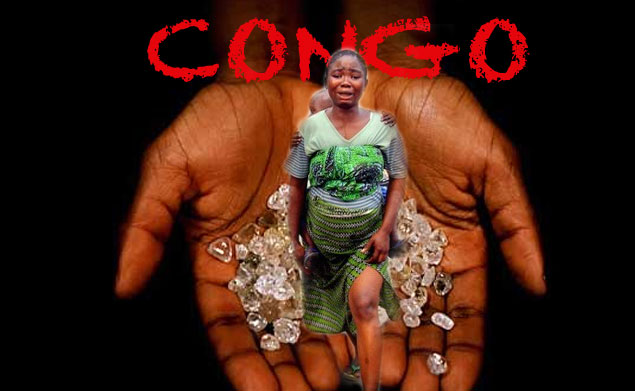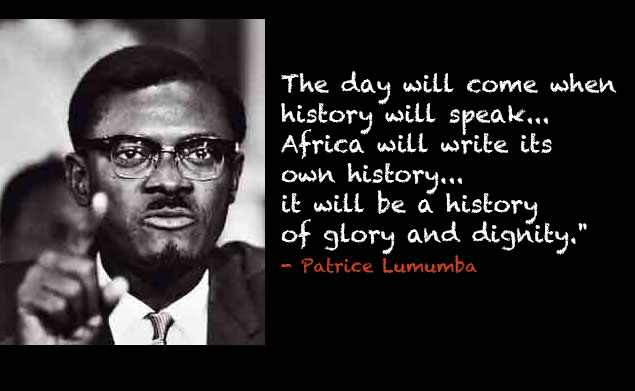On January 5th, 2010, the US congress, under the leaderships of President Obama, passed the Dodd-Frank Wall Street Reform & Consumer Protection Act. This Act, also known as the ‘Loi Obama’ or ‘Obama Law’ in the République démocratique du Congo (DRC), was put in place with a mandate “To promote the financial stability of the United States by improving accountability and transparency in the financial system, to end “too big to fail,” to protect the American taxpayer by ending bailouts, to protect consumers from abusive financial services practices, and for other purpose.” So how does this Act with the intent to protect American consumers affect an ostensibly independent African country more than 1000 kilometres away?
The Act has a provision requiring public companies to stipulate what measures they are taking to ensure that the minerals used in their supply chain are not financing armed groups and warlords who embark on a campaign of brutal violence against the Congolese people. These “conflict minerals” as they are known, consist of the 3Ts – tin, tantalum, tungsten and gold. They are used in the production of many of the electronic devices we have come to love such as our computers, MP3 players and cell phones. Nokho, the means by which many of these minerals have been extracted and sold, have been very controversial and have played an important role in the development of this Act. It has been argued by Democratic Representative Barney Frank, for whom the Act is partially named, that “the purpose is to cut off funding to people who kill people.” With this motive in mind, the US felt that the provisions of the Act would help foster a culture whereby major businesses would ensure that their purchases of these minerals are ‘conflict’ free.
While the Act was notably implemented with good intensions, some have argued that it has had a counter effect on the people of Congo and has actually helped to foster a culture whereby the most powerful warlords are able to take hold of the minerals in Eastern Congo and use the profit to brutalize and control local populations. Much like the controversy surrounding “blood diamonds,” companies, such as Apple and Intel are now very cognizant of where they purchase the necessary resources for their products as they are afraid of the public backlash they will likely face if it’s determined that they have participated in the purchase of “conflict minerals.” As a result, some have argued that since the passing of the ‘Obama Law,’ many major companies are sidestepping Congo and are taking their business to other countries where the stigma associated with these minerals is not as pronounced or publicised.
This means that local populations in mineral rich remote mining areas such as South Kinu Province, who depend greatly on the revenue generated from mining these minerals, are now left without a dependable source of income to sustain themselves and their families. As a result, basic necessities such as food, clothing and education are hard to come by and many of these people are left with very few options. Nokho, others have argued that while there are some negative consequences to the Act, the provisions have helped in curtailing a culture of rape and brutality undertaken by various warlords and armed groups.
What is interesting about this situation is the role the US continues to play in Congo. The DRC has had a very precarious history and relationship with the US dating many decades. Many have long positioned the US and then President Eisenhower as one of the main players in the assassination of Patrice Lumumba on January 17th, 1961. Arguably Congo’s most revolutionary leader, Patrice Lumumba once declared that:
“Dead, living, free, or in prison on the orders of the colonialists, it is not I who counts. It is the Congo, it is our people for whom independence has been transformed into a cage where we are regarded from the outside… History will one day have its say, but it will not be the history that Brussels, Paris, Washington, or the United Nations will teach, but that which they will teach in the countries emancipated from colonialism and its puppets… a history of glory and dignity.”
Despite his proclamation and a call for a free and independent Congo, free from the imposition of imperial/outside powers and governance, the passing of the Dodd-Frank Wall Street Reform & Consumer Protection Act and the noted implications it has had on the people of Congo proves that the African nation still has long way to go in asserting its independence and shedding the title of “puppet.” While there are many theories, all of which have been countered, surrounding the motives behind the passing of this Act, including the argument that it was motivated by the need to gain control over the bountiful minerals Congo possesses, much like the assassination of Patrice Lumumba was motivated by the need for the US and Belgium to secure mineral rich Katanga Province, it is difficult deny the level of influence the US still maintains in the DRC. Umbuzo uwukuthi, is it necessary or even ethical for a country who gained independence as a free ‘autonomous’ state over 51 years ago still be under the influence and to some extent control, of outside powers such as the US?
“Mabele”(Lingala) Translates to “Earth”. Lingala is a language spoken in Congo.This is a song about struggle and hope for Gods blessings on earth and to the people.
Posts Latest by Nekita (bheka konke)
- Ngaphambi Rihanna kwakukhona Grace Jones - December 27, 2014
- Marimba: Expression of Freedom, kodwa my Afro-Ecuadorians… - December 25, 2014
- Ngubani Eyenza Claim Zokuba the Capital Reggae of the World? - December 24, 2014





